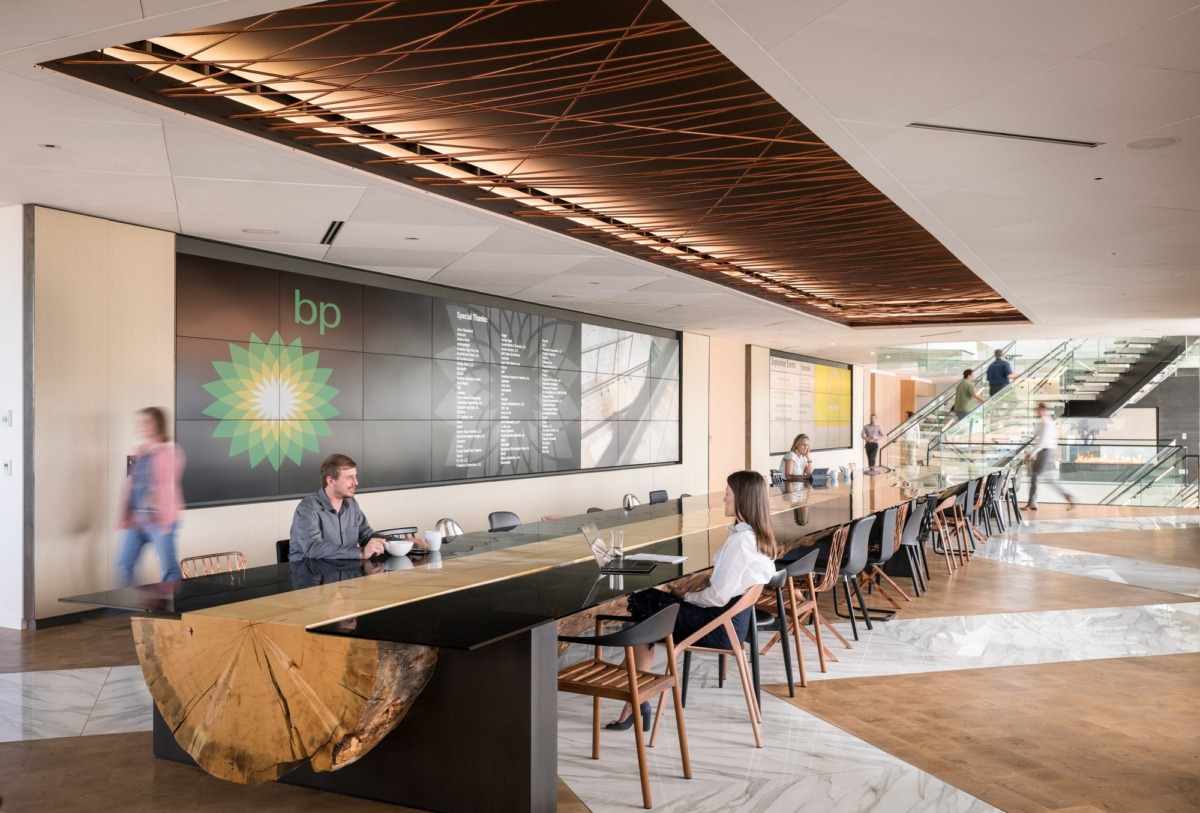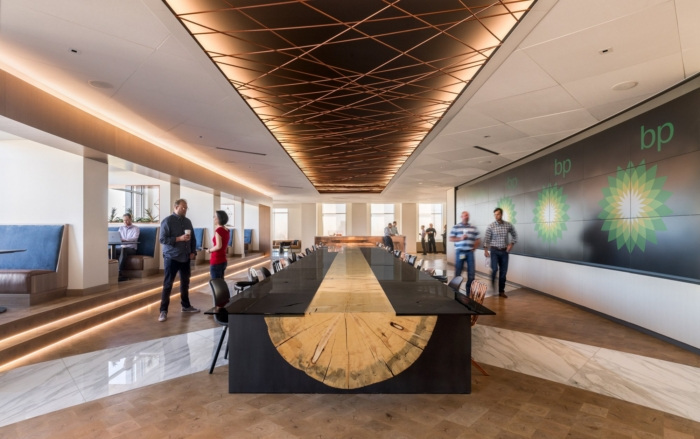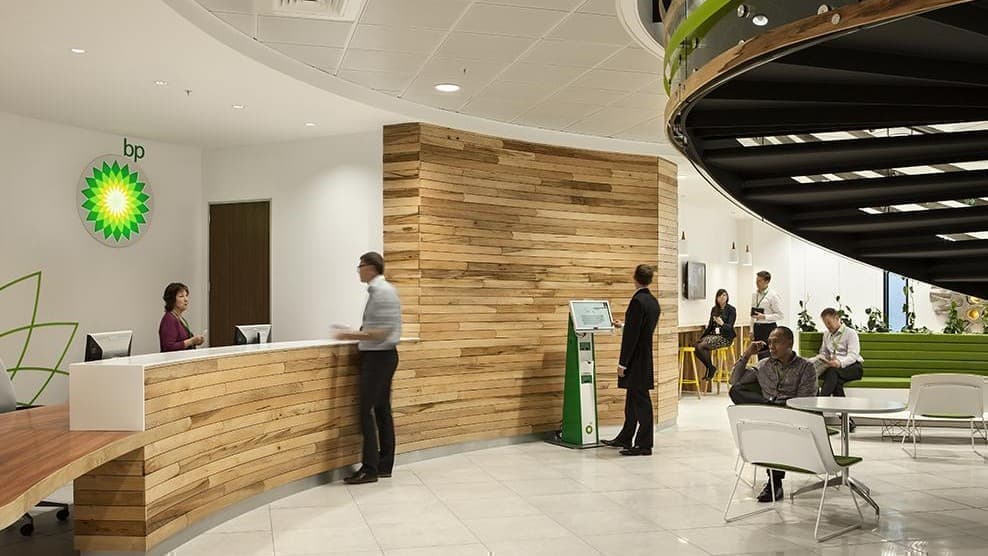bp, the global energy company we all know, is embracing better ways of hiring and driving growth in the business.
Like all companies, achieving growth and goals requires a supporting stage of diverse minds and fresh perspectives. There’s no denying it’s a focus and necessity for all. But in the context of today’s world and concerning climate, the stakes are arguably higher for bp. bp’s critical goal to create a low carbon and more sustainable future for our planet is something that affects us all.

One part of bp’s diversity agenda is a focus on growing their neurodiverse talent. In this case study, we speak to Sinéad Ryan, global early careers manager at bp about how they’re doing that so far, and the plans for the future.
Neurodiversity as a driver of growth
15-20 percent of the population is neurodivergent. It includes dyslexia, attention deficit hyperactivity disorder, autism, and more.
These groups of people have unique and valuable skills to offer companies, but have historically found it difficult – or impossible – to find roles within businesses, both big and small. This is due to a whole host of reasons: unconscious bias, restrictive thinking and tough interview processes to name a few.
bp want to face this head on and address the problem. It knows that, as an organisation with over 80,000 employees, a large number will likely be neurodivergent. The difference now is that it’s something bp want to purposefully build into their talented workforce for the future.
“In the early careers space, the talent that we’re recruiting now into internships, through graduate programmes and apprenticeships – they’re going to be the ones that are going to be here to meet our future aims as an organisation in 2030 and beyond,” says Sinéad.
“They’re the ones delivering our promise, so we want to make sure we bring in the best and most diverse early talent we can now, and grow that talent in bp to help reach those goals.”
The reason for this is to really harness the value neurodivergent people can bring. We know from studies and organisations that neurodiverse talent brings creativity, innovation and diversity of thought to any business table. But for bp, it’s something that goes beyond that. It’s also about bringing diversity through all lived experiences.
And to encourage and normalise differences between people within the workplace, driving awareness is the first step.
External partnerships
In the early careers space, bp works with two key partners to drive awareness and accessibility. MyPlus Consulting helps connect bp with candidates of all backgrounds. They have been instrumental for bp in reviewing their recruitment processes to better cater for neurodivergent talent, as well as offer training for recruiters to handle those conversations with confidence.
Events are also a key medium to access neurodivergent talent, particularly for larger organisations. It’s something bp is utilising with their external partners to showcase that people of all abilities and backgrounds can enter – and grow – at the company.
Sinéad talks about a series of events called ‘Empowering Futures’. Delivered by external speakers and experts in their field, these are bp-owned events that are a part of bp boost. The goal is to raise awareness about bp opportunities and also equip candidates with skills they can take forward into future job applications – be that at bp or somewhere else.
“We’re able to talk to candidates who may not have considered bp as somewhere that is accessible or a place they would consider working,” says Sinéad.
“We can show that actually we do care, we are interested and there is a huge amount of support we can offer.”
The second organisation bp works with is Ambitious about Autism. Specifically geared towards finding opportunities for people with autism, bp has run a 6-month placement programme with them where individuals gain the chance to get work experience at bp. And with huge success.
“We brought in 3 candidates through the programme, and 2 have gone on to join our graduate programme in 2021. The third individual, through the experience at bp, applied somewhere else and got the job,” explains Sinéad.
And while these success stories make you smile, it’s important to understand that they are in themselves reflective of the progress made in providing opportunities that would otherwise be hard to find.
But it isn’t always easy. And it’s not something that even a giant like bp can handle on their own. To successfully access, onboard and train the interns – and indeed their prospective managers, teams and wider organisation – third party experts such as Ambitious About Autism, have been instrumental.
The pilot programme is currently focused on the UK, but bp has plans to expand this to the US and other parts of the world, and are working on similar partnerships in each region.

Internal training and recruitment processes
Sinéad is very clear on the kind of culture bp want to create around diversity. As a company, bp want to foster a place where people can bring their full and whole self to work in order to reach their potential.
“We want to be an organisation where difference is valued,” begins Sinéad. “I think one element of this is creating a culture where people can be their true selves… while the second element is the external attraction piece.”
Focusing on the former, Sinéad mentions that there’s been a lot of work done in assessing the recruitment process for neurodiverse talent.
“There are a lot of myths around recruitment processes: how to pass them, how to show up,” explains Sinéad. “And to be honest we just want people to be themselves.”
To encourage this, bp hosts a recruitment series annually between October and November. Run by the recruitment team at bp, the aim of the game is to equip potential candidates with the knowledge of how to ace an interview and encourage them that it’s really ok to showcase your true self.
In fact, one of the key barriers bp and other organisations face is the reluctance of candidates to mention that they have a disability or that they need help during the interview process. Due to the stigma still attached around disabilities in the workplace, many people – particularly younger generations – may believe it could hinder their chances.
“I would so encourage candidates to tell us if they need help or if they need support, and we’ll make those adjustments,” says Sinéad. “We’re there to support. And we want neurodiverse talent to apply.”
bp ensure that these helplines are obvious at every stage of the process, from initial application to every piece of correspondence thereafter. Candidates can access a helpline if they have any concerns.
But of course it isn’t just candidates who need support. bp’s own recruitment and people team undergo extensive and regular training as well. Each candidate who has let us know they have a disability or has asked for support also has a dedicated point of contact throughout every stage of the interview process to ensure they feel comfortable and supported.
bp also offer to change their recruitment process depending on the adjustments that need to be made for each candidate. As simple as the candidate’s recruitment lead speaking with the internal assessment team, the recruitment process is then altered to cater for the individual without any worry or concern.
“We’re the ones trying to recruit and attract diverse talent. And I think often there is an expectation that candidates have to flex their style in order to get into an organisation,” says Sinéad.
“For us it’s completely the other way around.”
bp want to continue to change the traditional recruitment process and challenge the conventional approach to assessing candidates. They will be, and perhaps already are, out of date.
Currently, bp work around the issue and give a lot of time and support to those who need help. But the future goal is to assess for potential, rather than focusing on learned experiences and skills only.
“What we’re trying to do is take out some of those assessment barriers and level the playing field from the very start, especially for the candidates who need help and who potentially haven’t told us they need help.”

Hybrid working
The world has shifted once again, this time to hybrid. And while many feel positively about the flexibility hybrid working can bring, there are also some considerations to be aware of for individuals who won’t find the transition an easy one.
This means that organisations must find a way to be flexible outside of the normal realms of flexibility.
“We’re currently looking at internships and asking ourselves ‘what will that feel like for [neurodiverse] candidates,’” says Sinéad. “We need to make sure that our line managers are in the office and they have that face time with our interns.”
“But also that the interns have that flexibility too. If they want to work from home, they can.”
“I think there is an adjustment to that hybrid world of office and virtual working, and I think candidates are coming into an environment where a lot of organisations are still getting used to it themselves.”
This is the crux of the challenge for organisations looking to support neurodiverse talent in the best way possible. Change is difficult to manage at the best of times, but when everyone is in the same boat and becoming familiar with a huge change in the way we work, it can be a complex and fragile situation to get right for everyone.
bp has experienced significant benefits from the recruitment of neurodiverse talent and will continue to grow their focus and work in the space.
But more importantly, as it gains momentum the stigma continues to disappear. Those who are currently working at bp will feel increasingly equipped and ready to support different individuals in the workplace.
“Neurodiversity is for everyone. I think the diversity of thought, innovation and creativity that we’ve seen coming through candidates… and the contribution they make is amazing,” says Sinéad.
We couldn’t agree more, and we’re excited to see further progress in the space that benefits both individuals and organisations in their growth and development.
Source: hrdconnect.com








